Autel Evo Lite+ review: a top prosumer camera drone to rival the world-conquering DJI Mavic 3
The Autel Evo Lite Plus is a high-spec 6K drone for discerning videographers – here's our review
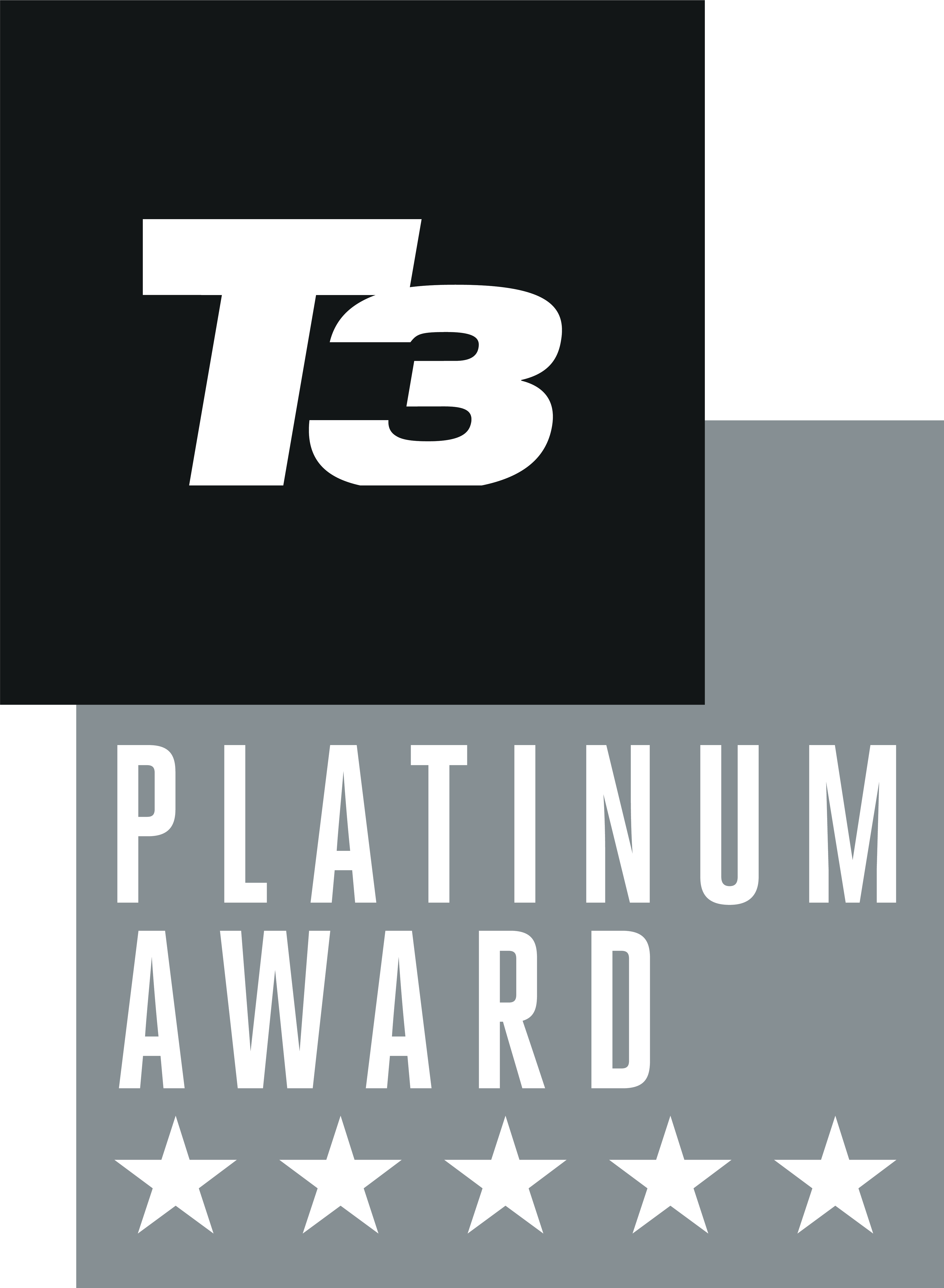
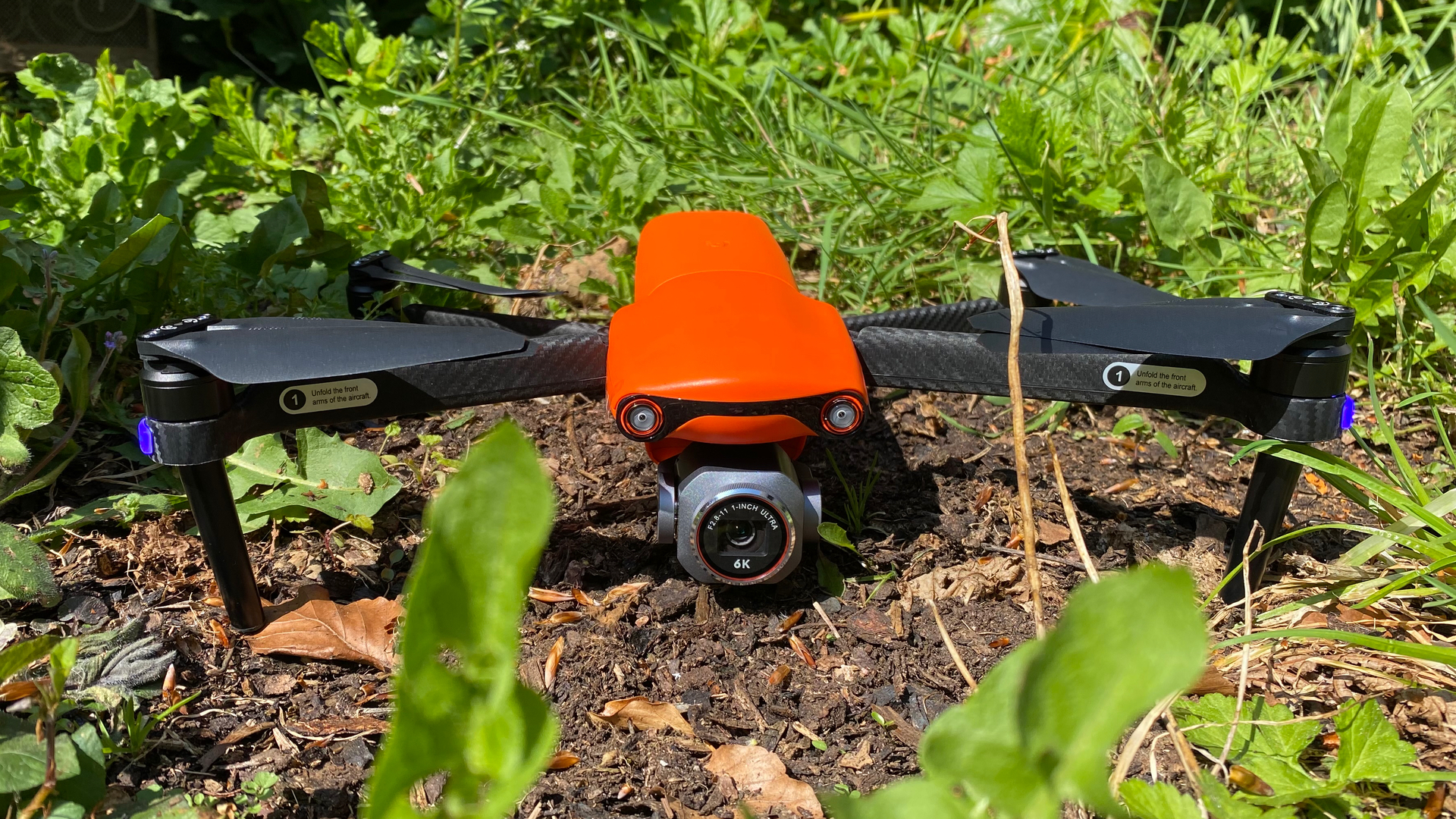
The Autel Evo Lite+ is the drone to choose if you want to shoot high-end 6K videos, fly for up to 40 minutes at a time and capture amazing cityscape images after dark. No question, this is one of the very best prosumer drones in its price category right now. So what are you waiting for?
-
+
Shoots 5.4K video
-
+
Excellent in low light conditions
-
+
40 minute flight times
-
+
Three colour choices
-
+
Obstacle sensing
-
-
It’s large and quite heavy
-
-
Not cheap
-
-
Not massively better than the Evo Nano+
Why you can trust T3

Welcome to T3's Autel Evo Lite+ drone review. As if out of the blue, around the start of 2022 Autel dived into the camera drone arena with a squadron of fantastic drones that are really shaking up the industry, and the Autel Evo Lite Plus is the prosumer option.
It was launched alongside two sub-250g drones, which I was also extremely impressed with (check out my Evo Nano drone review and Evo Nano Plus review for more on those – both have scored a place in T3's best camera drones ranking). The Plus model, especially, comes equipped with a jaw-dropping camera that blows most other consumer-rated camera drones out of the sky. But this review focuses on the Nano's larger stablemate, the Autel Evo Lite+.
Although a lot bit bigger in size and weight, the Lite Plus is capable of shooting in 6K (or 5.4K to be more precise) which gives even the class-leading and much more expensive DJI Mavic 3 a thoroughly good run for its money.
So what’s so special about the Lite+, and should you consider it above the DJI Mavic 3 or even Autel’s much smaller Evo Nano+? Let’s find out. Here's my full Autel Evo Lite Plus drone review.
Autel Evo Lite+ review: price and release date
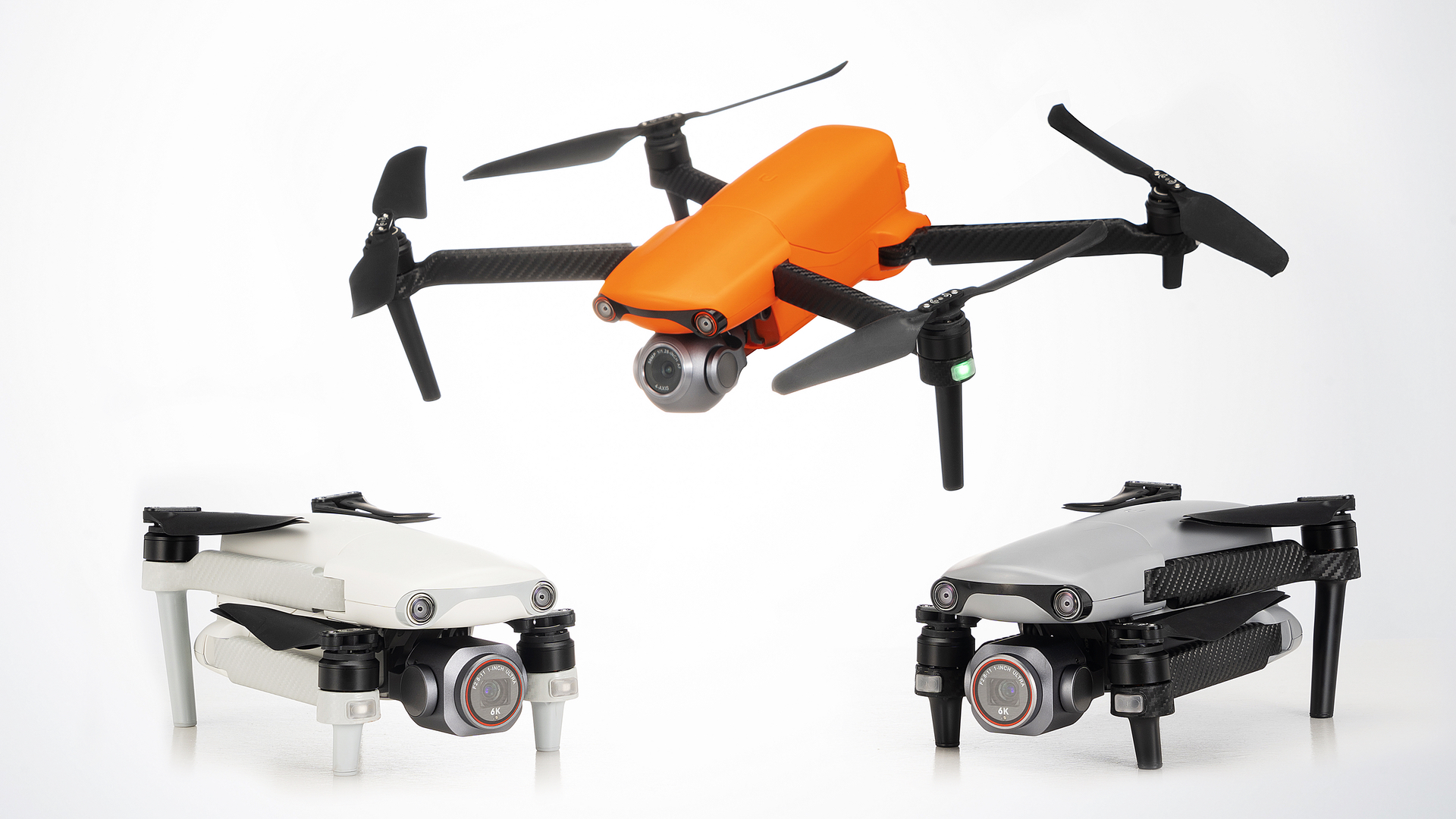
The Autel Evo Lite+ is available in three colours
The Autel Evo Lite range was released in January 2022 and is available in two configurations, the standard Lite model and the better-equipped Lite+ model I'm reviewing here.
When it comes to choosing which package to get, we would suggest the Standard Package (GBP £1,249 / USD $1,549) which includes the drone, controller, one battery, charger, spare prop and a brilliant shoulder bag to carry it all in. The Premium Bundle (GBP £1,519 / USD $1,849), however, includes two extra batteries, a multi charger, three spare pairs of props and the same great shoulder bag. Take your pick.
Autel has a UK website where interested parties can buy the drone directly. Alternatively, try Wex, Clifton Cameras and RCGeeks.
Get all the latest news, reviews, deals and buying guides on gorgeous tech, home and active products from the T3 experts
Autel Evo Lite+ review: design & features
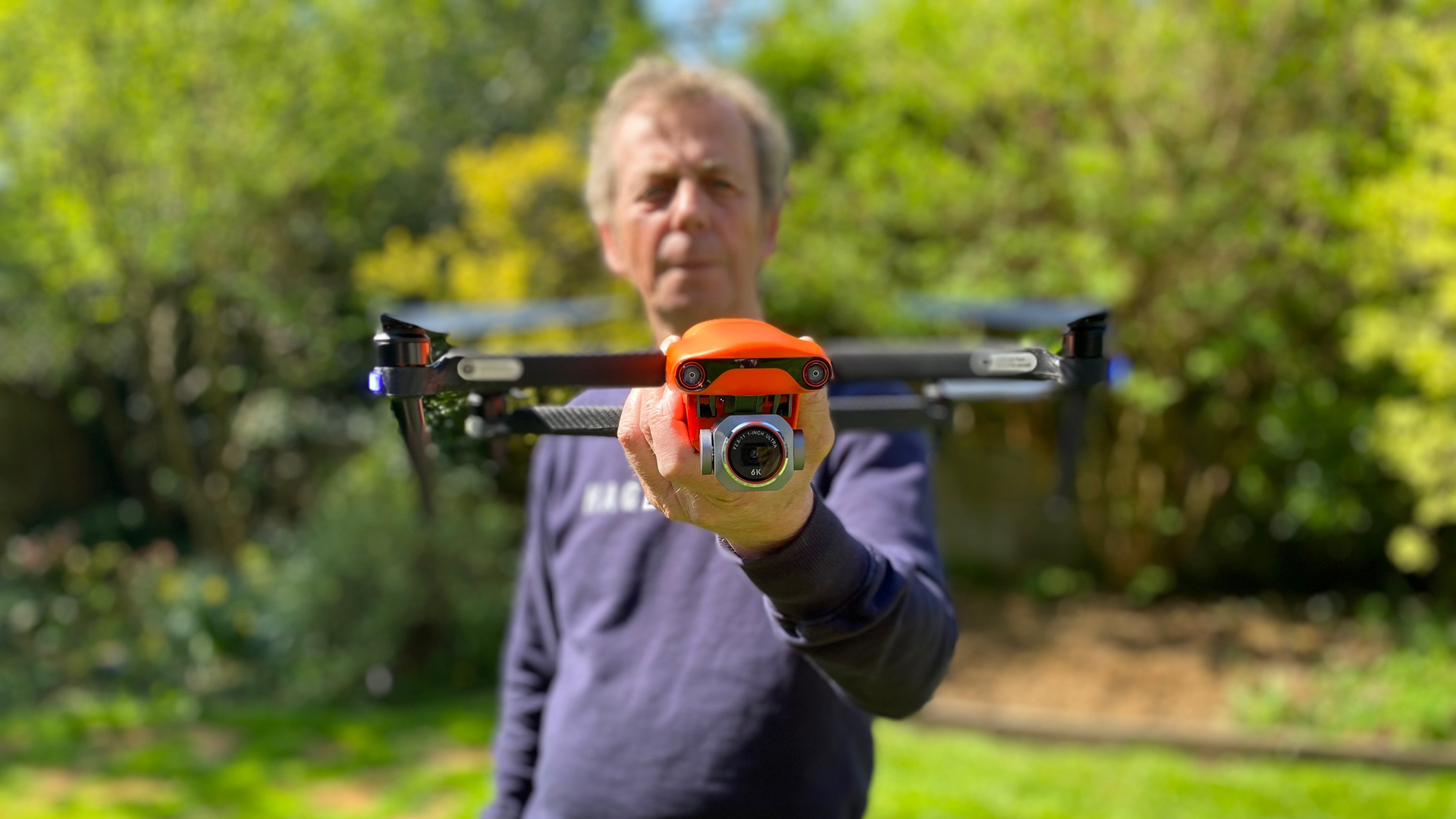
The Autel Evo Lite+ is a much bigger bird than its diminutive sibling, the Evo Nano+
DJI has long been the drone of choice for both consumers and pros, simply because no other manufacturer has ever come even a little bit close to matching the Chinese giant’s impeccable reputation in the sphere of camera drone production. We’ve seen a slew of contenders – GoPro, Parrot, US Robotics etc – enter the fray and they’ve all since thrown in the towel. Can Autel do any better? On evidence of what we’ve seen so far in the Nano series and this new Evo Lite+, hell yeah.
The Evo Lite+ weighs in at 835g, which means you will have to apply for a Flyer ID by enrolling in an online safety test and paying £9 for an Operator ID which is valid for one year. You can find out more about the CAA’s done regulations by visiting our guide to UK drone regulations 2022 (or, if you're in the States, the US drone rules).
But I digress. The Evo Lite+ weighs 60g less than its closest rival, DJI’s flagship Mavic 3, and it is only marginally smaller in size (210mm in length against the Mavic 3’s 221mm). And yet it’s significantly cheaper. Granted, the Mavic 3 is shipped with a theoretically better four-thirds camera but we’ll get to that in a minute.
Although the Evo Lite+ is equipped with robust carbon fibre arms, the overall build quality of the fuselage and battery housing isn’t quite up to DJI’s standard. For instance, when folded, the Evo Lite+’s prop arms protrude a tad more which makes it a teeny weeny bit more awkward to handle when putting it in its purpose-built bag. However, this is no slight on the Evo Lite+ because, once it’s is in the air, none of this stuff matters.
On the plus side, where most DJI drones come in just one colour – pale grey – the Evo Lite+ comes in three – dark grey, orange and white. Most users have opted for the orange which is much easier to see when up in the air, especially when flying in cloudy skies.
Like most higher-end drones these days, the Evo Lite+ is equipped with forward, rearward and downward obstacle sensors and this is a great thing to have on board when flying near trees and other large obstructions. Basically, if any of the sensors detect an obstacle, the phone app in the hand controller will beep loudly and the drone will come to a halt and hover.
Autel Evo Lite+ review: flight performance
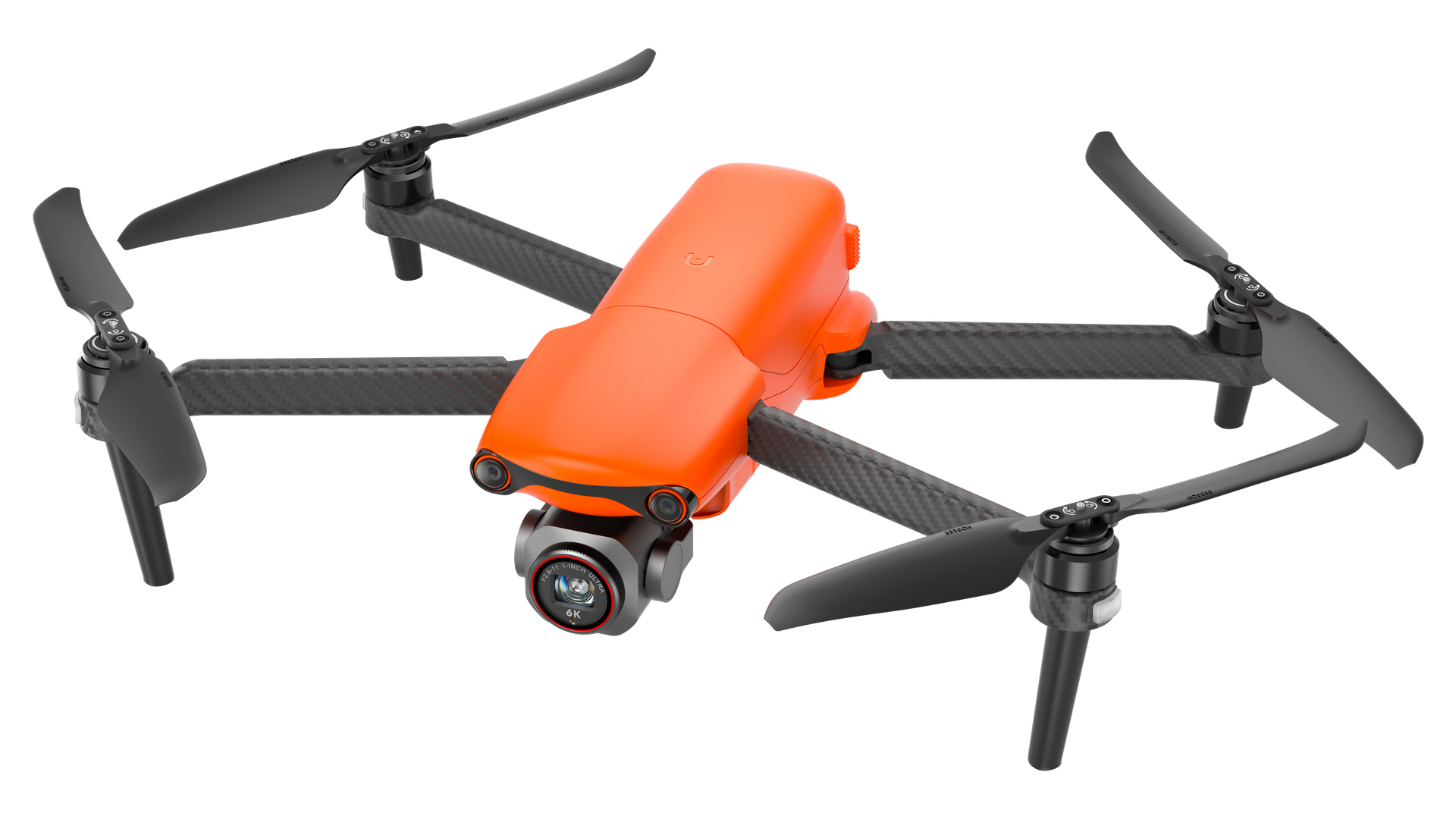
The Autel Evo Lite+ is amazingly easy to fly
This drone provides as smooth a flight experience as any model in the DJI roster. It really is a joy to fly – and it’s very quiet, too. The Lite+ has three main flying modes: Smooth, Standard and, in a nod to Tesla, Ludicrous. Smooth mode has a maximum speed of 11mph and is the mode of choice for low, slow and smooth cinematic shooting on windless days. Standard mode takes the drone to 22mph and is the function you’ll use the most when shooting video from higher altitudes. Ludicrous mode has a top speed of 40mph and should ideally be used to bring the drone back in a strong headwind. That said, it’s also a good mode for those who simply like to fly their drones at breakneck pace.
Autel Evo Lite+ review: battery performance
This drone boasts an excellent flight time of 40 minutes which is just six minutes shy of the Mavic 3. That’s a phenomenal stat given the drone’s size and weight and a major bonus for anyone shooting video in mountainous terrain or over sea where the act of seeking the money shot might involve a longer flight than usual.
The Premium Package we received for this review includes three batteries and a multi charger and this is one area that I think Autel could make improvements. For me, the charging method was awkward to use because it was difficult to line up the contacts on the battery. It’s not a deal breaker but it would be good to see an improvement on any subsequent releases.
Autel Evo Lite+ review: camera performance
I don’t know how they’ve done it, but Autel has managed to produce a range of cracking new cameras for its current roster of drones. Some say that its sensors are somehow related to Leica-Huawei products. Well, anything that's connected to the Leica name is good in my book.
The Evo Lite+’s camera is equipped with a one-inch CMOS sensor capable of producing video resolutions of 5.4K at 30 frames per second, 4K at 60fps, 2.7K at 60fps and 1080p at up to 120fps. All you need to know is that the quality of footage is breathtakingly good and, in some comparison shots, even sharper and more vibrant than the DJI Mavic 3. This is a staggering advance given that the Evo Lite+ is so much cheaper than the Mavic 3.
Then again, there’s also a good argument in favour of the smaller and much cheaper Autel Evo Nano+ which also produces incredible video and stills from a camera the size of a thumb. If you only ever watch aerial video on a standard computer monitor, phone or tablet, the Evo Lite+ may be overkill.
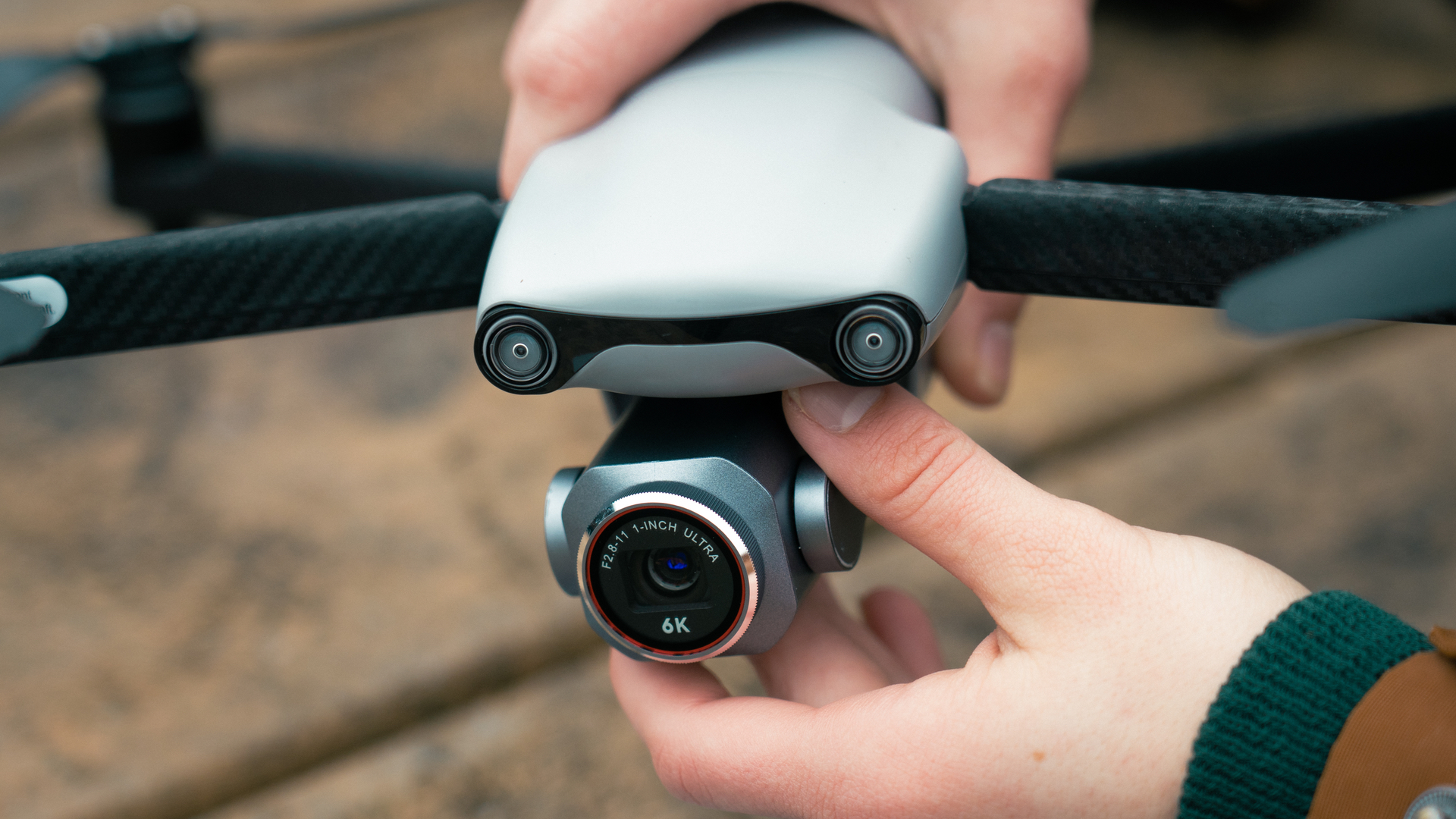
The Evo Lite+ features some amazing camera tech, including defog and an RYYB filter array
Although the titchy Nano+ sports an industry-leading f1.9 aperture which really shows its mettle when shooting in low light, the Evo Lite+ has a variable aperture of f2.8 to f11 which is a better bet for cinematographers and photographers who want a bit more versatility to hand. The Lite+ also comes with a stepped 16 x zoom function that’s useful for scouting subjects from afar, and a Defog function that adjusts the camera’s vibrance settings when shooting on a hazy day. Moreover, the latest firmware update includes both LOG and HDR. Many pros will appreciate the flat LOG colour profile, but for the rest of us, what comes straight out of the Micro-SD card is good enough.
Another excellent feature of this camera is that it uses an RYYB filter array – as featured on the Huawei P30 Pro phone – which allegedly allows 40% more light through the lens than other cameras. This makes the Evo Lite+ – and the Evo Nano+ which uses the same system – a superb choice for night time videography and photography.
Autel Evo Lite+ review: autonomous flight modes
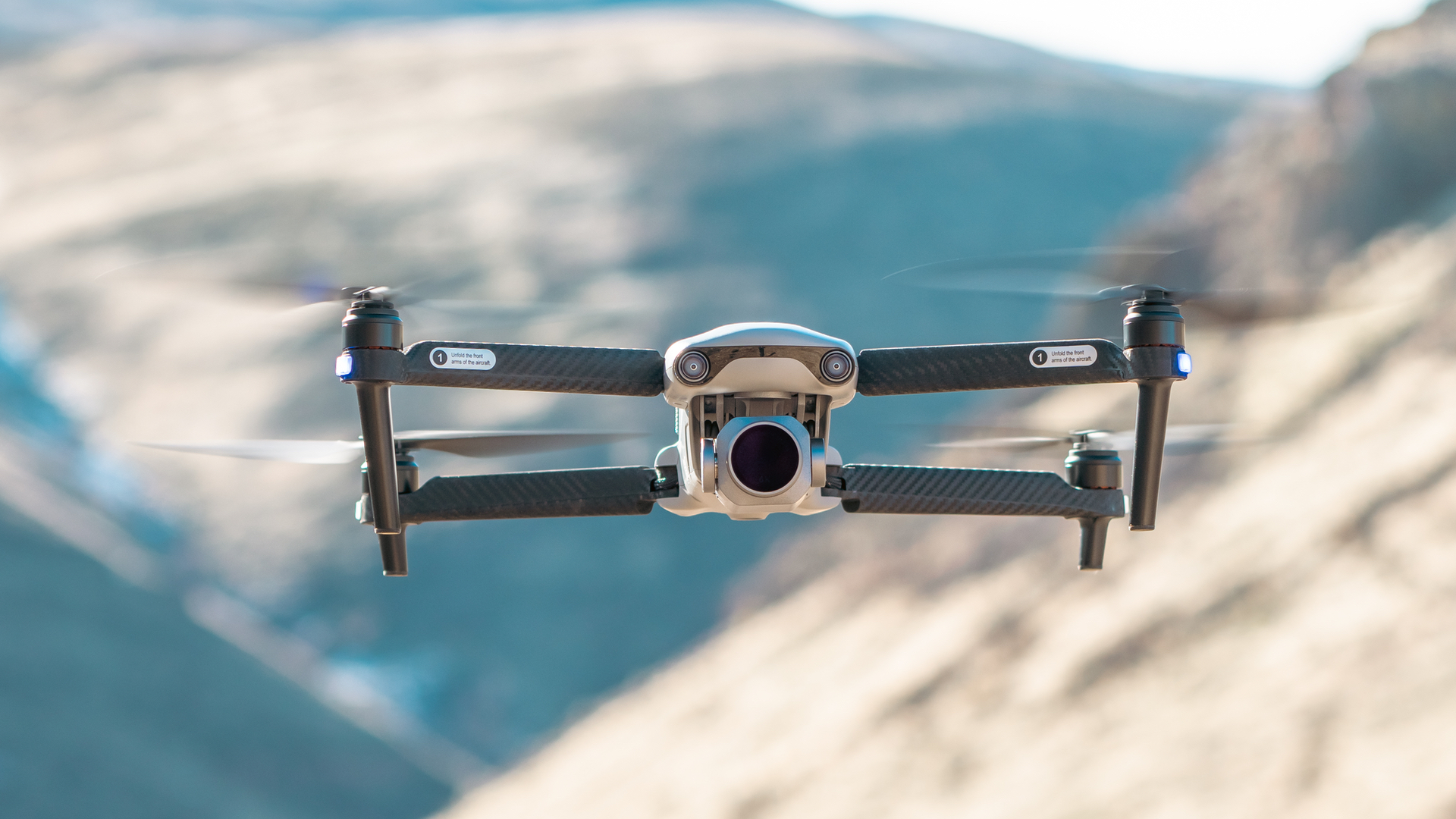
Like most well-equipped drones, the Evo Lite+ also features a number of autonomous flight modes that help the pilot shoot sensational video sequences from a variety of angles that are otherwise impossible to replicate manually. Orbit performs a perfect circle around the subject, Fade Away starts close to the subject before zooming backwards into the distance, and Flick tracks in towards a static subject before flipping around in the opposite direction. Dynamic Track 2.1, meanwhile, automatically follows a moving subject with zero input by the pilot. Aside from these great quick-shot functions, the drone can also shoot striking 4K Hyperlapse videos and widescreen panoramas.
Autel Evo Lite+ review: hand controller
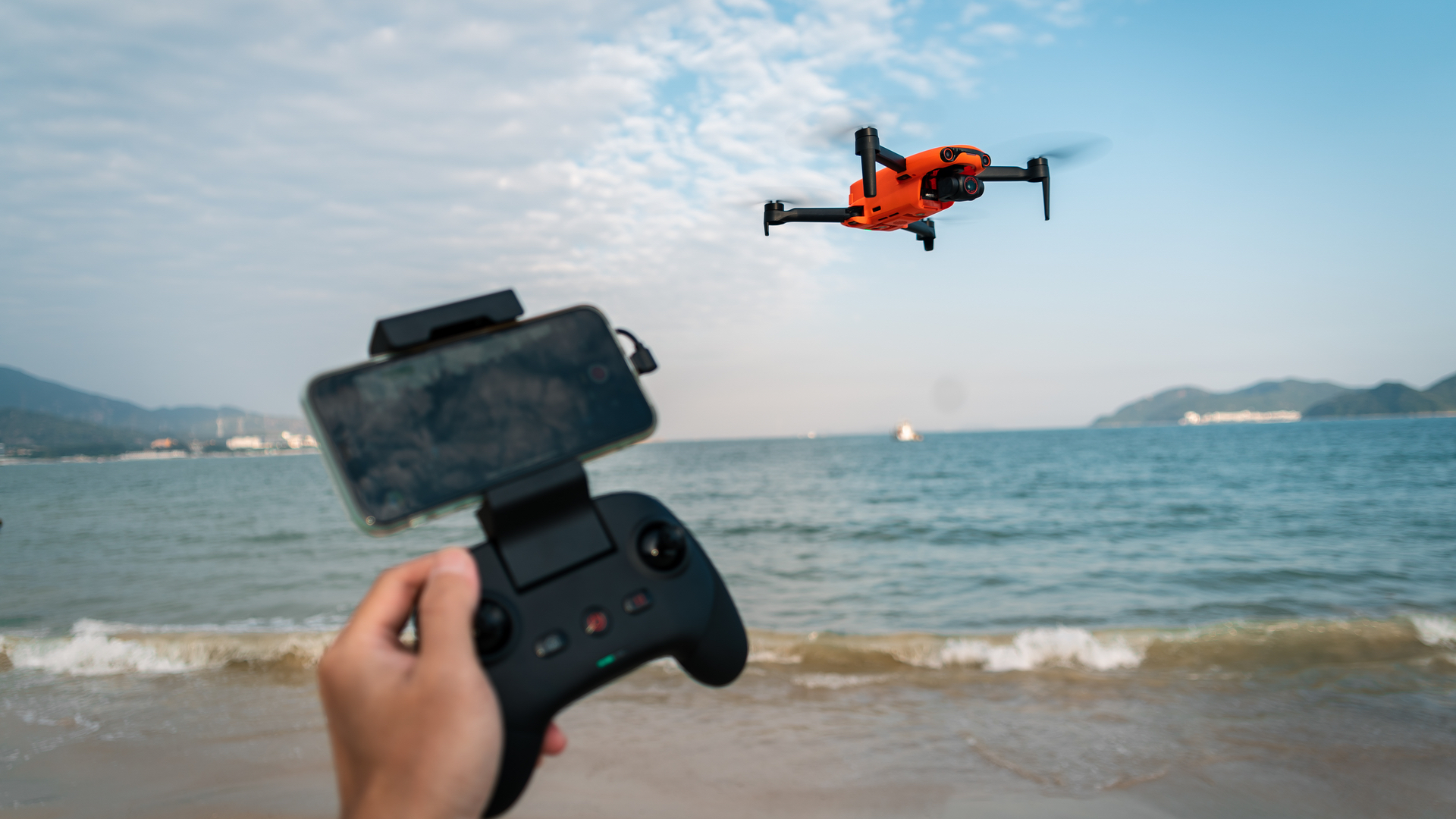
The Autel Evo Lite+ comes with a really comfortable hand controller with built-in cradle for plugging in a mobile phone so you can view the scene from the drone’s camera along with a range of inflight information. The controller features the usual gamut of control buttons, including return to home, and image and video taking. There’s also a stupendously smooth gimbal controller wheel on the rear that’s a breeze to use. It’s just a shame that the removable joysticks can't be stored on the controller when carrying the drone in its dedicated bag. But, hey, you can’t have everything.
Autel Evo Lite+ review: video transmission
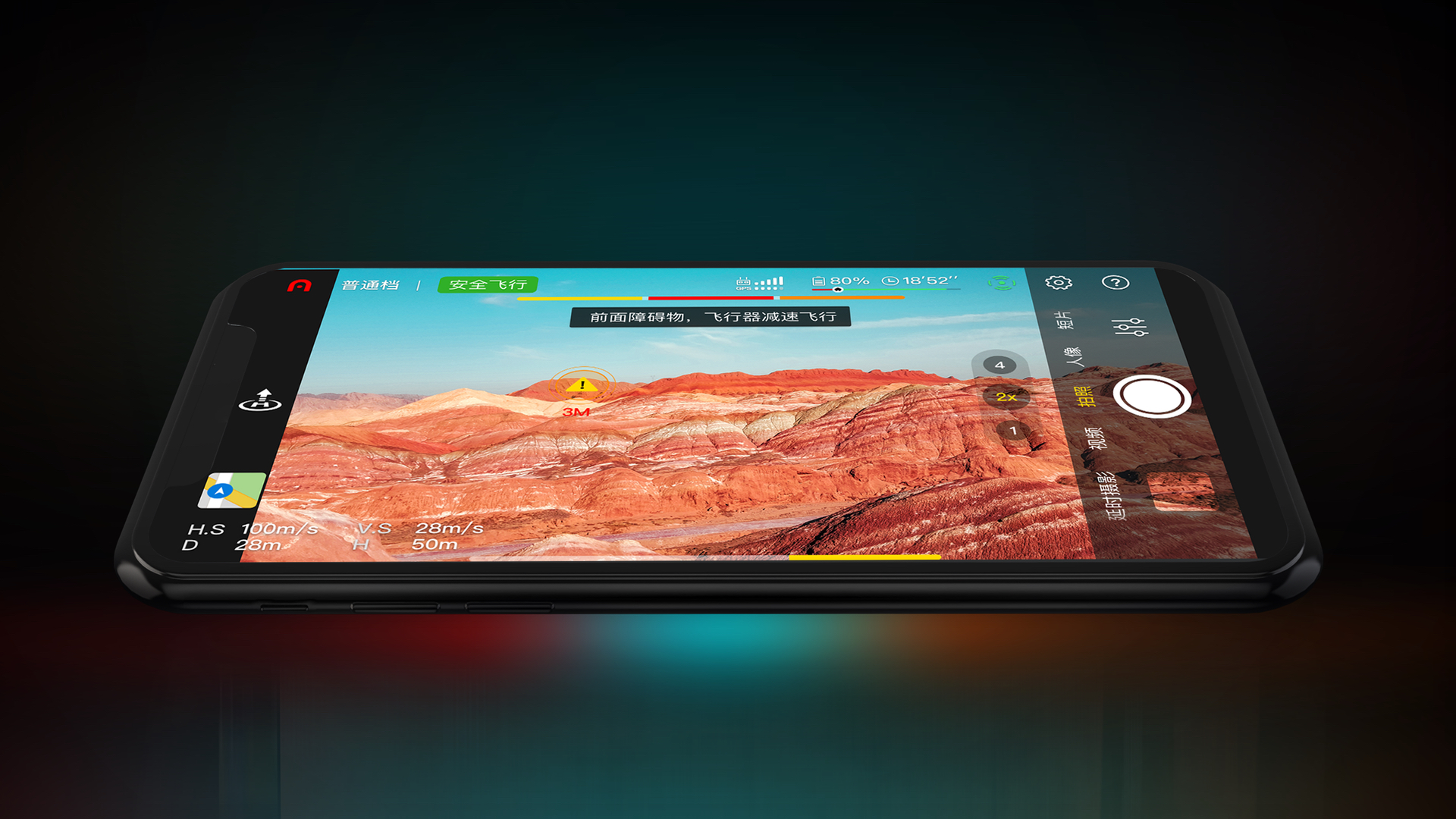
2.7K video transmission. Now that's what I'm talking about
The Evo Lite+ transmits its live video feed from drone camera to the phone screen in 2.7K for up to 1km away and 1080p beyond that. Believe me, you’ll appreciate this extra clarity when flying in areas with complex lighting and lots of obstacles. If flying the drone beyond line of sight, you’ll be pleased to know the transmission remains pretty stable up to a phenomenal 7.5 miles. But bear in mind that, in most countries, flying beyond line of sight is illegal.
Autel Evo Lite+ review: Autel Sky app
All modern drones use a phone app to provide full inflight information to the pilot on the ground. The Evo Lite+ connects to the Autel Sky app to provide info on GPS, current altitude, speed, etc, plus access to the camera settings and all flight parameters, including return to home altitude, maximum distance and gimbal control.
Autel Evo Lite+ review: verdict
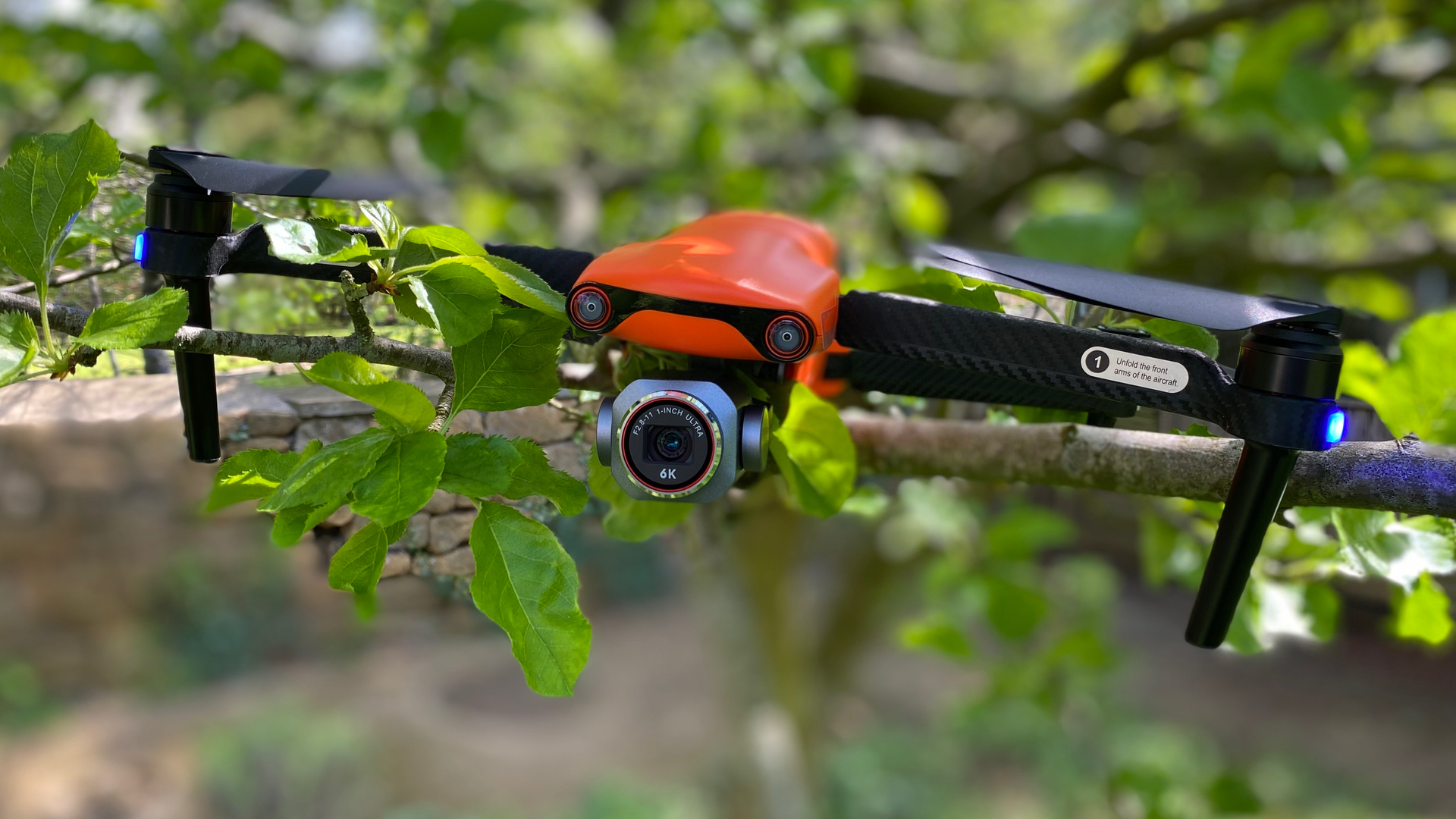
The Autel Evo Lite+ resting in a tree
Now to the crux of my Autel Evo Lite Plus drone review: should you buy one? Well, if you’re looking for a large but compact foldable drone that’s comparable with the much more expensive DJI Mavic 3, then make a beeline towards this model. The Evo Lite+’s camera is clearly the star of the show but there’s a lot more tantalising stuff under the skin. That said, if cost is a major factor but you still want a drone that can shoot pristine videos and pin-sharp photos on a budget, you simply can’t go wrong with this drone’s little brother, the Evo Nano+.
- Still confused? Try our guide on How to buy the right drone for you
Derek (aka Delbert, Delvis, Delphinium, Delboy etc) specialises in home and outdoor wares, from coffee machines, white appliances and vacs to drones, garden gear and BBQs. He has been writing for more years than anyone can remember, starting at the legendary Time Out magazine – the original, London version – on a typewriter! He now writes for T3 between playing drums with his bandmates in Red Box (redboxmusic).
